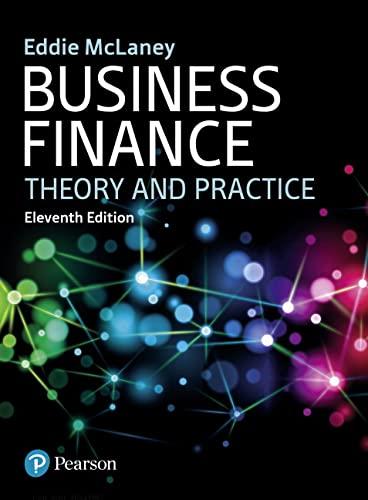
Question 1 You have obtained quarterly data from the ABS for Tasmania from September 1984 to March 2008 for the following variables: EMP, the number of employed persons in thousands EMP, AWE, the average weekly earnings in $ per week, GSP, the Gross State Product GSP, TIME, a time trend increasing by 1 per quarter. You have the following OLS regression results in Table 1 from EViews. Table 1 Dependent Variable: AWE Method: Least Squares Sample: 1984Q3 2008Q1 Included observations: 95 Variable Coefficient Std. Error t-Statistic Prob. LOG(EMP) LOG(GSP) TIME 275.46 226.14 0.91 -2783.18 69.81 36.93 0.36 221.25 3.95 6.12 2.50 -12.58 0.0002 0.0000 0.0141 0.0000 R-squared Adjusted R-squared S.E. of regression Sum squared resid Log likelihood F-statistic Prob(F-statistic) 0.988755 Mean dependent var 0.988385 S.D. dependent var 13.00598 Akaike info criterion 15393.15 Schwarz criterion -376.4697 Hannan-Quinn criter. 2667.247 Durbin-Watson stat 0.000000 525.5368 120.6777 8.009888 8.117420 8.053339 0.610187 a. Carefully interpret the coefficients of LOG(GSP) and TIME in Table 1. [5 marks] b. Do you think there any problems with these estimated results? so why? [5 marks] c. The residuals from the estimation in Table 1 are saved as RESID and the following results in Table 2 obtained. Name and conduct the appropriate test and explain its importance? [5 marks] Question 1 You have obtained quarterly data from the ABS for Tasmania from September 1984 to March 2008 for the following variables: EMP, the number of employed persons in thousands EMP, AWE, the average weekly earnings in $ per week, GSP, the Gross State Product GSP, TIME, a time trend increasing by 1 per quarter. You have the following OLS regression results in Table 1 from EViews. Table 1 Dependent Variable: AWE Method: Least Squares Sample: 1984Q3 2008Q1 Included observations: 95 Variable Coefficient Std. Error t-Statistic Prob. LOG(EMP) LOG(GSP) TIME 275.46 226.14 0.91 -2783.18 69.81 36.93 0.36 221.25 3.95 6.12 2.50 -12.58 0.0002 0.0000 0.0141 0.0000 R-squared Adjusted R-squared S.E. of regression Sum squared resid Log likelihood F-statistic Prob(F-statistic) 0.988755 Mean dependent var 0.988385 S.D. dependent var 13.00598 Akaike info criterion 15393.15 Schwarz criterion -376.4697 Hannan-Quinn criter. 2667.247 Durbin-Watson stat 0.000000 525.5368 120.6777 8.009888 8.117420 8.053339 0.610187 a. Carefully interpret the coefficients of LOG(GSP) and TIME in Table 1. [5 marks] b. Do you think there any problems with these estimated results? so why? [5 marks] c. The residuals from the estimation in Table 1 are saved as RESID and the following results in Table 2 obtained. Name and conduct the appropriate test and explain its importance? [5 marks]







